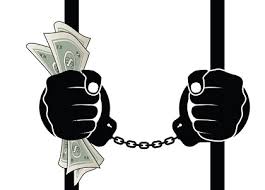7 Steps to take before you sign that lease
Dealing with people in any situation can easily get complicated and much more so when it comes to making legally binding agreements. The last thing you want to happen is to sign an agreement and move into a property only to find out, when it’s time to pay for utilities, that you are expected to take responsibility for these things contrary to your expectations that your landlord would do so, given that the meter is in their name.
This is just one minor example of the many things that could possibly go wrong with a lease agreement. To proactively protect yourself and make sure your expectations match the provisions of the contract you eventually sign, read through this article for some important steps you should take.
#1. Learn legal language
No this is not a joke. You will need to learn how to read legal language in order to make complete sense out of your lease agreement. You certainly should not take any terms you do not understand for granted as that is just the way to get yourself into something you are going to find very difficult to get out of eventually. If you find learning how to read and understand legal language difficult, then you are going to need to hire a lawyer.
#2. Beware of generic agreements
Most real estate contracts will follow the same generic format and you shouldn’t be too alarmed if your would-be landlord presents you with one that seems rather generic. What you do need to do is make sure that it gets amended to include all relevant details. It is a bit difficult to predict all possible issues you might have with your lease but details such as the address, the landlord’s name, the term of the contract and etc, should definitely be included in it.
#3. Severability
Contracts are not always binding, especially when they contain certain elements or clauses which are found to be illegal. Under normal circumstances, when a contract has one of its clauses invalidated for such reasons, it usually affects the enforceability of the entire contract, unless the contract contains a severability clause. This is a provision that basically makes it possible for you to remove any illegal clauses in the lease agreement without invalidating the entire contract.
#4. Know the law
You probably won’t even need a severability clause if you know enough of the law to know which clauses are enforceable and which are not. You don’t have to go to law school to be able to do this as there is an abundance of information online and you could also visit a nearby by library. One thing to beware of though, is that are state and province laws may vary from one place to another.
#5. Grace periods
You might have every intention of making your rent payments as and when due, but this is not something you want to be held to as you simply cannot predict the future. Depending on how the contract is structure, running afoul of your lease agreement could have potentially serious implications including eviction.
To take into account any unpredictable events which might compromise your ability to be the model tenant, you will need to make sure your lease agreement contains a provision for grace periods to enable you make payments in times of difficulty.
#6. Make sure verbal agreements are represented
It’s one thing for an ad to claim pets are allowed, or for your landlord to say that they are fine with sub-leasing. However, if these sentiments are not explicitly included in the lease agreement, then you might be getting into a binding agreement that does not represent your expectations. Make sure you keep record of all your verbal agreements and ask for them to be included in the lease agreement.
#7. Cover all the bases
We can’t possible list out all the things you should be looking for in a lease agreement here, but you probably already have some idea of everything you should be looking out for. Some things you should pay specific attention to, however, are things like which party will be responsible for utilities, maintenance and repairs, and other such issues.
Conclusion
As we suggested earlier, it’s probably a good idea for you to do some research to find out what the provision of the law is for lease agreements. You could also go through some sample lease agreements, particularly if this is your first time, so that you are well prepared and well protected.





